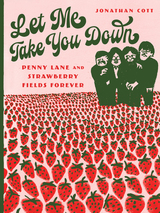247 scholarly books by University Press of New England and 8
have author last names that start with P
247 scholarly books by University Press of New England and 8
247 scholarly books by University Press of New England
8 have author last names that start with P have author last names that start with P
8 have author last names that start with P have author last names that start with P
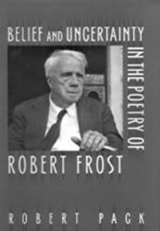
Belief and Uncertainty in the Poetry of Robert Frost
Robert Pack
University Press of New England, 2004
Robert Pack’s lifelong delight in Robert Frost's intricate, beautiful, and profound poetry shines through in the essays in this book. He confronts such broad themes as mourning, inheritance, nature, and the imagination, bringing to bear historical, psychological, Darwinian, and close-textual-reading interpretive approaches. Chapter one sets Frost’s work in the tradition of nature writing, from the Book of Genesis through modern American ecological works. Chapter two examines the profound influences of the Book of Job, Darwin, and evolutionary theory on Frost’s thinking. There follow chapters that structurally and philosophically compare Wordsworth’s “Michael” to Frost’s “Wild Grapes,” focusing on the themes of inheritance, grieving, and the potency of the imagination. The reader encounters Frost as teacher and preacher, Frost’s idea of how beliefs are affirmed, the simultaneous representation of adult memory and immediate childhood sensation, and the underlying duality of place and nothingness, which forms the existential background for his “stay against confusion”—the consoling purpose of Frost's poetic art.
[more]
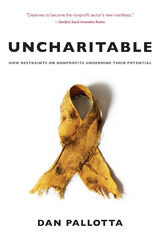
Dan Pallotta
University Press of New England
Uncharitable goes where no other book on the nonprofit sector has dared to tread. Where other texts suggest ways to optimize performance inside the existing paradigm, Uncharitable suggests that the paradigm itself is the problem and calls into question our fundamental canons about charity. Author Dan Pallotta argues that society’s nonprofit ethic acts as a strict regulatory mechanism on the natural economic law. It creates an economic apartheid that denies the nonprofit sector critical tools and permissions that the for-profit sector is allowed to use without restraint (e.g., no risk-reward incentives, no profit, counterproductive limits on compensation, and moral objections to the use of donated dollars for anything other than program expenditures). These double-standards place the nonprofit sector at extreme disadvantage to the for profit sector on every level. While the for profit sector is permitted to use all the tools of capitalism to advance the sale of consumer goods, the nonprofit sector is prohibited from using any of them to fight hunger or disease. Capitalism is blamed for creating the inequities in our society, but charity is prohibited from using the tools of capitalism to rectify them. Ironically, this is all done in the name of charity, but it is a charity whose principal benefit flows to the for-profit sector and one that denies the nonprofit sector the tools and incentives that have built virtually everything of value in society. The very ethic we have cherished as the hallmark of our compassion is in fact what undermines it. This irrational system, Pallotta explains, has its roots in 400-year-old Puritan ethics that banished self-interest from the realm of charity. The ideology is policed today by watchdog agencies and the use of “efficiency” measures, which Pallotta argues are flawed, unjust, and should be abandoned. By declaring our independence from these obsolete ideas, Pallotta theorizes, we can dramatically accelerate progress on the most urgent social issues of our time. Pallotta has written an important, provocative, timely, and accessible book—a manifesto about equal economic rights for charity. Its greatest contribution may be to awaken society to the fact that they were so unequal in the first place.
[more]
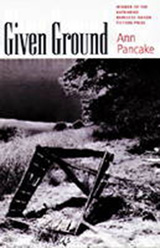
Given Ground
Ann Pancake
University Press of New England, 2008
Departing from Appalachia's 150-year-old literary legacy of formula and caricature, West Virginia native Ann Pancake uses the texture of language, an intense attention to place, and complexity of characterization to recreate the region -- its tragic history and fragile culture, the interior landscapes of its people, and their deep rootedness in a threatened land. Her characters, already marginalized economically and socially, confront what many perceive as an invading outside culture, enduring and at times transcending the loss of their "place," both literally and figuratively. Their stories undermine the assumption that just because people don't articulate what happens inside them, nothing much is happening at all.
[more]
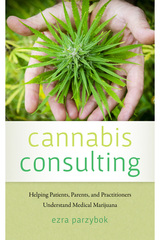
Cannabis Consulting
Helping Patients, Parents, and Practitioners Understand Medical Marijuana
Ezra Parzybok
University Press of New England, 2018
As the movement for legalization of marijuana spreads across the country, it is important to weigh the possible benefits and pitfalls of cannabis use. Cannabis Consulting is both a handbook and a report from the front lines of medical marijuana use. Writing from the perspective of a parent and veteran schoolteacher turned professional cannabis consultant, Ezra Parzybok tells the often-inspiring stories of his practice, where he assists victims of chronic pain, terminal disease, and even conditions such as ADHD. This timely volume was written for patients and families, law enforcement and health professionals, who are trying to make decisions about cannabis during this critical era of transition. It is an honest, clear-eyed exploration of the marijuana debate that looks beyond the hype and disinformation on both sides to chart a new path toward rational and safe use of cannabis.
[more]
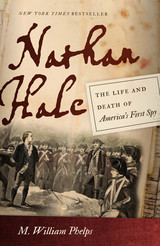
Nathan Hale
The Life and Death of America's First Spy
M. William Phelps
University Press of New England, 2015
Although famous for his purported last words—“I only regret that I have but one life to lose for my country”—few people know the real Nathan Hale. M. William Phelps brings into focus the life of this famed patriot and first spy of the American Revolution, charting Hale’s rural childhood, his education at Yale, and his work as a schoolteacher. Like many young Americans, he was soon drawn into the colonies’ war for independence and became a captain in Washington’s army. When the general was in need of a spy, Hale willingly rose to the challenge, gathering intelligence behind British lines on Long Island, and in the end bravely sacrificing his life for the sake of American liberty. Using Hale’s own journals and letters as well as testimonies from his friends and contemporaries, Phelps depicts the Revolution as it was seen from the ground. From the confrontation in Boston to the battle for New York City, readers experience what life was like for an ordinary soldier in the struggling Continental Army. In this impressive, well-researched biography, Phelps separates historical fact from long-standing myth to reveal the truth about Nathan Hale, a young man who deserves to be remembered as an original American patriot.
[more]
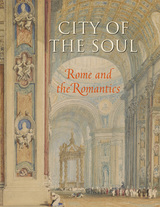
City of the Soul
Rome and the Romantics
John A. Pinto
University Press of New England, 2016
City of the Soul critically examines how an international cast of visitors fashioned Rome’s image, visual and literary, in the century between 1770 and 1870—from the era of the Grand Tour to the onset of mass tourism. The Eternal City emerges not only as an intensely physical place but also as a romantic idea onto which artists and writers projected their own imaginations and longings. The book will appeal to a wide audience of readers interested in the history of art, architecture, and photography, the Romantic poets, and other writers from Byron to Henry James. It will also attract the interest of historians of urbanism, landscape, and Italy. Nonspecialists and armchair travelers will enjoy the diverse literary and artistic responses to Rome.
[more]
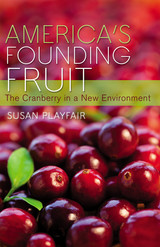
America's Founding Fruit
The Cranberry in a New Environment
Susan Playfair
University Press of New England, 2014
The cranberry, Vaccinium macrocarpon, is one of only three cultivated fruits native to North America. The story of this perennial vine began as the glaciers retreated about fifteen thousand years ago. Centuries later, it kept Native Americans and Pilgrims alive through the winter months, played a role in a diplomatic gesture to King Charles in 1677, protected sailors on board whaling ships from scurvy, fed General Grant’s men in 1864, and provided over a million pounds of sustenance per year to our World War II doughboys. Today, it is a powerful tool in the fight against various forms of cancer. This is America’s superfruit. This book poses the question of how the cranberry, and by inference other fruits, will fare in a warming climate. In her attempt to evaluate the effects of climate change, Susan Playfair interviewed growers from Massachusetts west to Oregon and from New Jersey north to Wisconsin, the cranberry’s temperature tolerance range. She also spoke with scientists studying the health benefits of cranberries, plant geneticists mapping the cranberry genome, a plant biologist who provided her with the first regression analysis of cranberry flowering times, and a migrant beekeeper trying to figure out why the bees are dying. Taking a broader view than the other books on cranberries, America’s Founding Fruit presents a brief history of cranberry cultivation and its role in our national history, leads the reader through the entire cultivation process from planting through distribution, and assesses the possible effects of climate change on the cranberry and other plants and animals. Could the American cranberry cease growing in the United States? If so, what would be lost?
[more]

Battered Women In The Courtroom
The Power of Judicial Responses
Ptacek
University Press of New England, 1999
READERS
Browse our collection.
PUBLISHERS
See BiblioVault's publisher services.
STUDENT SERVICES
Files for college accessibility offices.
UChicago Accessibility Resources
home | accessibility | search | about | contact us
BiblioVault ® 2001 - 2024
The University of Chicago Press






